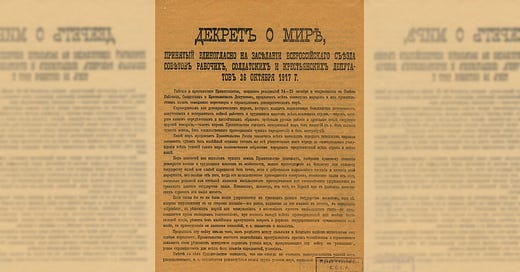The following is an extended excerpt from Vladimir Lenin’s Degree on Peace, passed by the Second All-Russian Congress of Soviets of Workers and Soldiers Deputies during World War I. The full version is available here.
Keep reading with a 7-day free trial
Subscribe to Carl Beijer to keep reading this post and get 7 days of free access to the full post archives.





